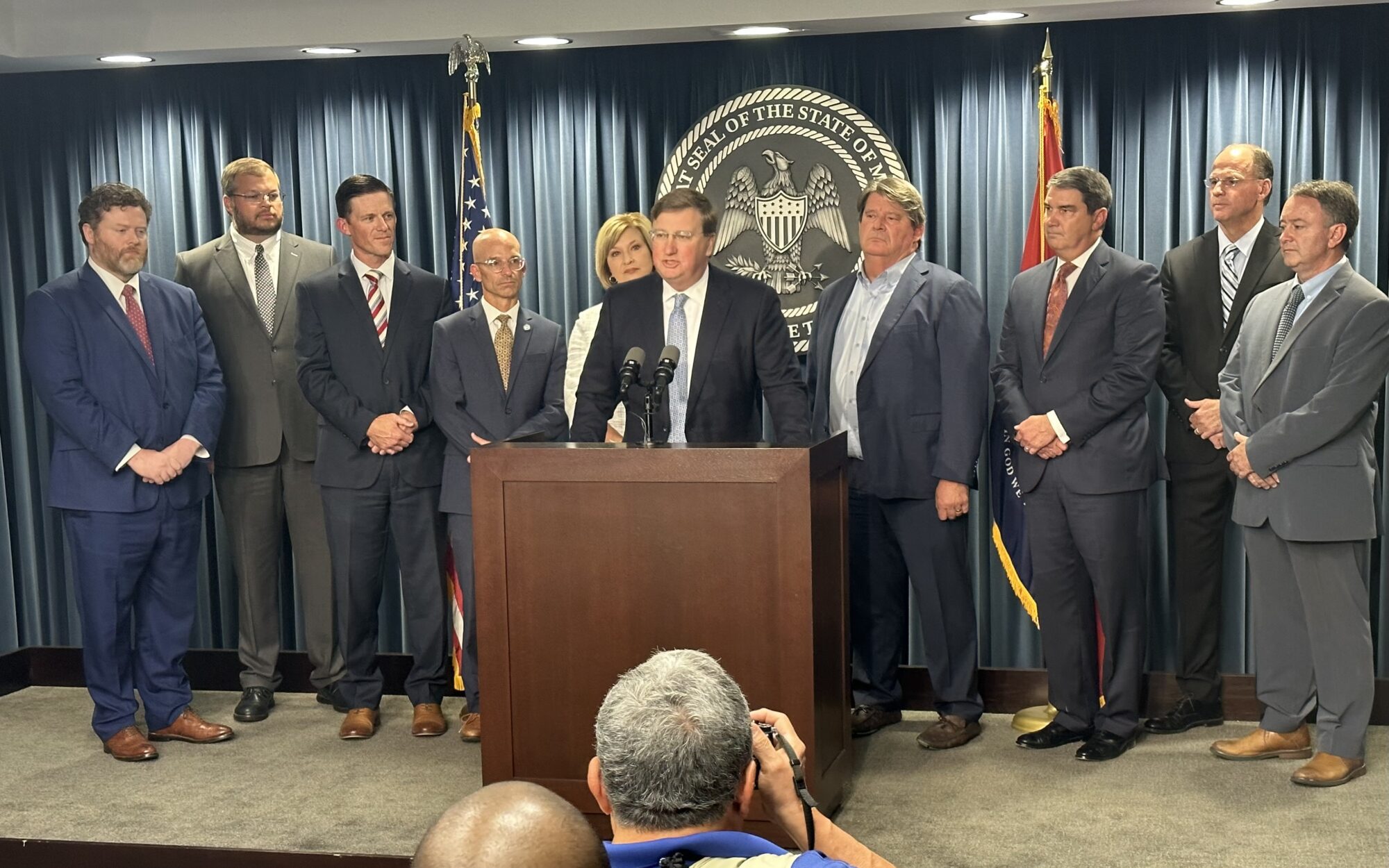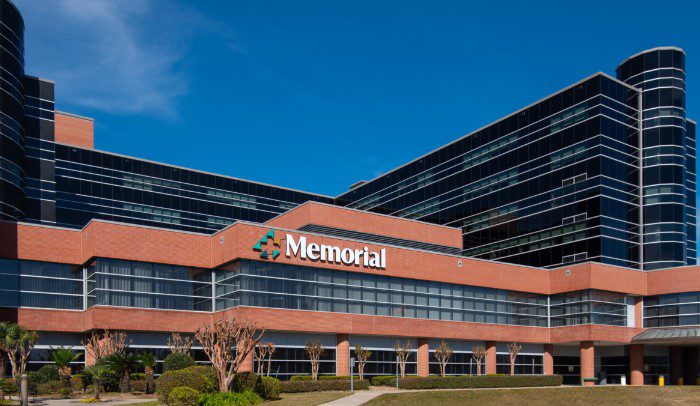
(Photo provided by Governor Tate Reeves office)
The new proposal could infuse roughly $700 million in new revenue for hospitals, including mental healthcare.
In a recent report by the Center for Healthcare Quality & Payment Reform, 24 of the state’s rural hospitals were considered at risk for closure, the third highest in the nation. The report found that more than 600 rural hospitals across the nation are at risk of closure due to losses of patient services and low financial reserves.
With healthcare needs on the rise, Mississippi state leaders have offered several proposals to attempt to alleviate the financial burden facing many of these providers. The most recent came from the office of Governor Tate Reeves.
The program proposal, which must still be approved by the Centers for Medicare and Medicaid (CMS), offers Medicaid reimbursement reforms estimated to infuse nearly $700 million in new revenue for the state’s hospitals on annual basis.
If approved, the plan would increase the Mississippi Hospital Access Program (MHAP) reimbursement to Medicaid members and would supplement the program’s base rates for hospitals by reimbursing inpatient and outpatient hospital services in the fee-for-service system. This rate would be based on Medicare’s rates.
Drew Snyder, Director of the Division of Medicaid, said Medicare rates are higher than Medicaid’s and commercial rates are estimated at 193% of Medicare.
“The Medicaid reimbursement reform plan announced by Governor Reeves is the most impactful action to help Mississippi hospitals right now,” he wrote in an editorial for Magnolia Tribune.
Stuart Archer, CEO of Oceans Healthcare, says behavioral healthcare facilities not only felt the impact of COVID during the pandemic, but afterwards as well, with what he called a “mental health pandemic.”
“Historically, behavioral health hospitals have had a small place at the legislative table,” said Archer. “We are very enthusiastic and appreciative of the Governor and Medicaid that they would include behavioral hospitals in this program.”
Archer said costs in the healthcare sector have increased dramatically and, more often than not, federal programs do not include behavioral hospitals among those that are eligible for additional dollars.
During the pandemic, Archer said behavioral hospitals lacked a “playbook” for how to handle care. Many chose to stay open in order to care for patients, despite challenging conditions in an uncertain environment.
A major factor was retention of staff, Archer said. Like many hospitals, behavioral health programs struggled to match wages for staff with those being offered in other settings.
“People were being recruited or taken out of state and it really hurt us,” said Archer.
While a demand for behavioral health services indicates a positive change in the way the public views mental health, Archer said it has increased demand quickly. Since the pandemic, he indicated that there had been a significant rise in the need for children’s services, with reports of anxiety rising for adults like never before.
The utilization of telemedicine has offered some relief, but for hospitals like those operated by Oceans, in person care is a necessity.
“There are some really good people in this state who are thoughtful and caring and do provide care in a way that works for Mississippians,” said Archer. “We are very optimistic about what is coming forward.”
Following the recent program proposal to provide new revenue for Medicaid, hospitals are staying optimistic for continued relief.
“It’s definitely positive news,” said Lee McCall, Chairman of the Board for the Mississippi Hospital Association and CEO of Neshoba General. “We’ve all been looking for ways to enhance supplemental payments.”
According to McCall, stakeholders looked into this proposal last year when estimates showed an infusion of new revenue would be between $400 and $500 million.
“It appears they’ve gone back to the drawing board and almost doubled what they anticipated a year ago,” said McCall.
He said he has not seen the program model at this time but anticipates it will be made available soon, prior to the presentation to CMS.
McCall said Neshoba General has been operating at a 5% negative margin, or roughly $2.5 million in operational losses. The program indicates they would receive around $3.175 million, which would allow the hospital to be above breaking even.
According to Gary Marchand, Interim CEO of Greenwood Leflore Hospital, they are expecting the program to also impact financials in a positive way.
“This new Medicaid payment program will reduce or eliminate the underpayments to Greenwood Leflore Hospital when caring for residents with Medicaid coverage or uninsured. These new payments will help stabilize current and future operations. We appreciate the efforts to provide these additional payments in support of our operations – and the communities we serve,” said Marchand.
“It doesn’t solve all the problems but it helps us get back to a steady state, operationally and address what kind of changes we need to make to continue to fund what the hospital is doing,” said McCall.
Snyder said approval from CMS is anticipated in the coming months.











